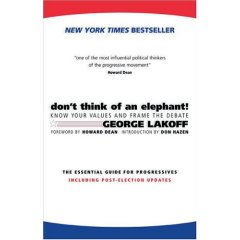Having learned to fly from pilots he befriended, Smith enlisted in the United States Army Air Forces in the hopes of becoming a military pilot. He was invalidated from the flight programme because of imperfect vision in his left eye. Given a choice between joining the military band and being sent to mechanic’s school, Smith opted to join the military band. Smith claimed that they gave him a cornet, an Arban’s instructional book, and two weeks to meet the standard, which included being able to read music. Determined not to go to mechanic’s school, Smith spent the two weeks practicing the cornet in the latrine, as recommended by the bandleader, and passed the examination.
Category: Flavors of the One Love
-
Johnny Smith Learns the Cornet
-
Exploratory Ideas for Newsware User Interfaces
Way back when, I was a journalism major in college. So I was pleased to meet the folks from Daylife last year and bat around some ideas about how they’re aggregating, understanding, and syndicating news applications. I just found part of the conversation lying around my hard drive and thought you might be interested in browsing some exploratory ideas for newsware user interfaces.

-
The Failure of Failure
Much has been written about the importance of failure in design. To improve things we need to try new approaches which sometimes work and sometimes don’t. Straight forward enough, at least to designers.
But business managers won’t go near that. “Yes, I need to fail!” Bull-shit, you ain’t gonna hear that in many management offices. So I’ve been thinking about how to re-frame the word “failure”.
“Iteration” is pretty good, but implies each pass is good and just keeps getting better. Michael Linton, CMO of Best Buy, has trials he calls “ready-fire-aim” activities. And I just thought of a new one:
A try.
This is riffing off two different words. One is “the ask” which is more commonly being used as a noun, meaning “the request” (annoyed the hell out of me for a while, but I’m adjusting). But mostly try is a riff on the rugby use of the word which refers to the major way of scoring points in that game, equivalent to a touchdown in American football.
How might I use it? The sketch looks great, let’s make one in foam core and go for a try with some customers…
It could be a wonderful evocation of cognitive dissonance, as it would simultaneously mean to make an effort as well as score!
-
What Music Videos Want to Be When They Grow Up: Once
-
Worthwhile is Now Motto
 I just noticed that Worthwhile magazine dodged a trademark suit bullet and re-emerged as Motto magazine. They had good spirit before, I’m looking forward to checking out this new incarnation.
I just noticed that Worthwhile magazine dodged a trademark suit bullet and re-emerged as Motto magazine. They had good spirit before, I’m looking forward to checking out this new incarnation. -
Photographer Recommendation in New York
I splurged on a new headshot recently and was lucky to find Carla Coria, a photographer here in Brooklyn, New York who does amazing work with a simple studio and a digital camera. She made prep easy and effective, the shoot as fast and painless as possible, and a week later had a final shot plus 200 others all ready on a DVD. And if she made me look decent, you know she’s got skills.
-
No-Knead Product Design
Lou dropped off a loaf of this amazing no-knead bread that’s all the rage among home cooks these days (recipe). It was and continues to be delicious, and as I munched through the crunchy exterior into the large crumb I pondered Lou’s search for a no-knead information architecture. My brain loves reducing complex processes to heuristics to make life simpler, so I’ve been looking for the equivalent for my job: no-knead product design. After chatting with some Overlappers tonight, here’s my first pass:
(more…) -
Eat food. Not too much. Mostly plants.
…that’s the spoiler from Michael Pollen’s Unhappy Meals, in which he expertly dissects the food industry at the personal, commercial, industrial, and societal levels in just a few thousand words, helping us see the problems with Western nutrition are worse than we thought.
I’ve been working in this industry lately, and fascinated by the meta-designs that change eating and fitness on a large scale for the betterment of society — companies like Whole Foods, Curves, Jamba Juice, and Nike.
On the personal level, here’s a summary of Pollen’s eating advice:
(more…) -
Two films on my to-see list: Inconvenient Truth & Electric Car
An Inconvenient Truth is Al Gore’s film about global warming. A friend of a friend who saw a preview said it blew her mind.
Who Killed the Electric Car? investigates, murder mystery style, the birth, limited commercialization and subsequent death of the electric vehicle in the United states.
-
Innovation in poached eggs
Surrounded by the twin mystiques of brunch and Hollandaise, Elaine Corn offers a better, simpler cooking method (boil water in a shallow skillet, add vinegar and salt, slide the eggs in and turn the heat off, let cook in covered skillet for three minutes). I can tear that page out of my Betty Crocker cookbook now.
-
Reframing control in social media
We’ve been working for several companies facing how they and their markets change with the further spread of social media. It’s creating enormous potential for more democratic media production and sophisticated tools, but a lot of it will rely on companies understanding it and being receptive to it. We’re developing a framework to help companies do this, and one of the key considerations is not scaring the shit out of them.
I’m referring here to the control issue. Some have simply said “you must give up control.” J.D. Lasica puts it more gently: “We’re transitioning to a new kind of culture. More participatory, more open, more interactive where the locus of control passes.â€
I agree, and yet telling business people they’re losing control isn’t likely to go down well. People like control. Managers like control. Control helps us survive in an uncertain world.
Jeff Jarvis frames it a different way: “The No. 1 lesson of the Internet whether you’re Howard Dean or a media company or a marketer, is that you have to give up control to gain control.” He cites a benefit, but still we’re left asking, “How much control does one give up? What do we really stand to gain?” Business managers aren’t an audience of socialists, they’re an audience that needs to make money to keep themselves and their colleagues employed in an uncertain economy.
 I think frames that appeal to good old fashioned business drivers will be more effective, such as:
I think frames that appeal to good old fashioned business drivers will be more effective, such as:- build communities of loyal customers
- reduce content creation/acquisition costs
- increase audience size through viral marketing
- offensively compete with would-be disruptive media forces
…and so on. We outlined these in the form of a poster, Social Media and Value Creation. It’s a work in progress; we haven’t seen established companies pursue this course yet and everyone will be learning.
-
Don’t Think of an Elephant!
 I finally got a around to reading Don’t Think of an Elephant! in which George Lakoff applies his linguistic and cognitive ideas on framing to American progressive politics. It’s a compelling, important book, and the theory can be used anywhere, particularly the hierarchy of vision -> values -> principles -> policies -> ten-word philosophy. It’s also short, there’s no excuse not to read it.
I finally got a around to reading Don’t Think of an Elephant! in which George Lakoff applies his linguistic and cognitive ideas on framing to American progressive politics. It’s a compelling, important book, and the theory can be used anywhere, particularly the hierarchy of vision -> values -> principles -> policies -> ten-word philosophy. It’s also short, there’s no excuse not to read it.— — — — —
My running notes…
Reverse engineer the conservative phrases: Bush said, “We don’t need a permission slip to defend America.” This invokes the parent-child relationship; we understand large social groups in terms of small ones. He specifically used the strict father frame (see James Dobson‘s Dare to Discipline). Essentially it is a father who can
- Protect the family in a dangerous world
- Support the family in a difficult world
- Teach his children right from wrong
This leads directly to the morality of self-interest and Adam Smith’s free market capitalism.
Progressives have a nurturant parent model that is gender neutral and assumes children and the world is a good place, and our job is to make it better. The values are
- freedom
- opportunity
- prosperity
- fairness
- open, two-way communication
- community-building
The conservatives have factions, but they found their common interests and invested in institutes and think tanks, which paid off in media exposure.
The progressive Enlightenment emphasizes truth, but the truth must be presented in way that fits people’s frames. Concepts are instantiated as synapses in our brains, and facts that don’t fit aren’t strong enough to create new structures.
Self-interest forms the basis of conservative values, but doesn’t act on the surface. People will vote against the candidate who gives them tax cuts if they identify with the values of the other candidate, even if that’s a worse choice for them personally.
Tailoring issues to polls can be useful, but the conservatives real method is to say what they idealistically believe, they talk to their base using the frames of the base. The undecided in the middle have multiple frames present, and you can activate one with your language. Clinton’s “welfare reform” and “the age of big government is over” did this by stealing the enemy’s language.
Taken further it becomes Orwellian — opposite — like Clear Skies and Healthy Forests. It signals where they are pushing unpopular initiatives and are vulnerable. See Frank Luntz. Deceptive frame is morally reprehensible and eventually backfires.
But the words must follow from ideas. The idea, the frame, is already is people’s minds. If it isn’t, you suffer from hypocognition, the lack of a needed concept.
(It occurred to me while visiting Germany that Germans don’t mind paying their high taxes because it’s a great value; they get awesome service for their tax dollar. I think Americans are used to a certain level of service and figure taxes will go up without a corresponding increase in service. Could service level in the business sense be used in government?)
Progressives are often on the defensive because the conservatives are better funded. Progressives fund grassroots, conservatives fund infrastructure. The right cuts taxes, the left helps the poor, and the right privatizes the left.
Solution: talk about values. See the Rockridge Institute.
Strategic conservative initiatives attack at the root: tax cuts disable many social programs, tort reform disables many environmental lawsuits (and subsequently cuts donor money from Democrats).
Strategic initiatives can start as slippery slope issues: Intelligent design, partial-birth abortion…
Hierarchy of action: identify your moral values, generate political ideas, invest in infrastructure, frame those ideas in language.
The media requires stories, and stories require frames.
Voters vote based on their identity: who they are, what values they have, and who and what they admire, more so than based on self-interest.
Some Conservatives are better named radical right-wingers.
Schwarzenegger = stereotypical strict father. He used a Voter Revolt frame, which turned around is a Right Wing Power Grab frame, claiming to represent the people while leveraging the resources of the Republican infrastructure.
When you understand the strict father model, you understand how gay marriage is such a threat to everything conservative. Arguing for gay marriage must go beyond the pragmatic benefits of marriage, the frame “freedom to marry” evokes the American ideals open to all. It’s about equal rights and having a state that provides them. Appeal to sanctity rather than basic economic fairness.
To extend the strict father metaphor to war, anything you do against the evil side is good, whereas progressives would view certain actions as evil even if they’re used to battle evil people.
Addressing the culture of despair suffered by Islamic communities in the middle east might make them more willing to take more moderate positions towards American culture and other elements they object to.
Nixon’s “I am not a crook” illustrates that the use of negatives frames the situation the wrong way, we must use positive language.
Applied to foreign policy:
- Values: fairness, minimal violence, an ethic of care, protection for those needing it, a recognition of interdependence, cooperation for the common good, the building of community, mutual respect…
- Concerns: environment, women’s rights…
- Actions: Anti-Ballistic Missile Treaty, Kyoto accords…
…if foreign policy doesn’t follow from moral norms, contradictions arise, such as being anti-terrorism while ignoring terrorism of Russians and Pakistanis or sponsoring terrorists ourselves.
A perpetual state of war contributes to the conservative agenda by sapping money from social programs (and not raising taxes).
Lies, in the case of President Bush’s reasons for going to war, can be explained in terms of exaggerations, misleading statements, mistakes, rhetorical excesses… A lie may only be a lie if that person didn’t believe what was said. And ultimately lies are minor compared to the betrayal of trust.
Wedge issues: guns, babies, taxes, same-sex marriage, the flag, school prayer.
“Ten word philosophy” with my modifications:
Strong economy
Prosperity for all
Better education
Effective Government
Mutual responsibilityAlways start with values, values everyone shares.
Use rhetorical questions: “Wouldn’t it be better if…”
Show moral outrage with controlled passion.
Always be on the offense. Don’t negate the other person’s claims; reframe. Never answer a question framed from your opponents point of view.
Tell a story where your frame is built into the story.
Use wedge issues: “Do you support a Military Rape Treatment Act to allow our raped women soldiers to be treated in military hospitals to end their rape-induced pregnancies?”
-
The ‘objective’ press
Strong Lattes, Sour Notes at Starbucks: Starbucks’ adventures in media bars aren’t playing out as planned
BusinessWeek, June 20, 2005At Starbucks, a Blend of Coffee And Music Creates a Potent Mix: Chain Boosts Sales and Careers As It Co-Produces, Offers Selected CDs in Its Stores
Wall Street Journal, July 19, 2005 -
Energy vocab watch
Terry just taught me
clean washinggreenwashing, which is when a company smears on the energy-efficient PR while continuing their old inefficient ways.And now there’s hygrid, a hybrid of electricity from the grid and rolling your own.
-
Mad Hot Ballroom
NYC school kids learn ballroom dancing, wonderful.

